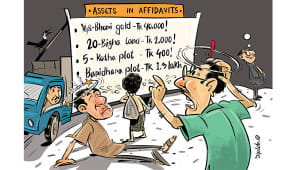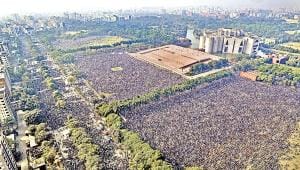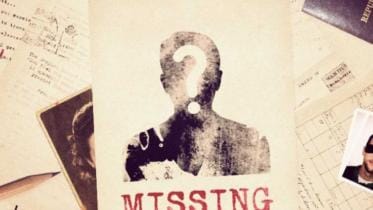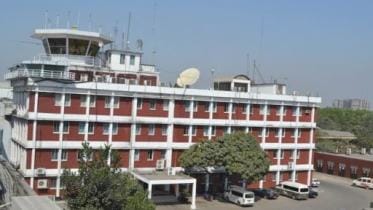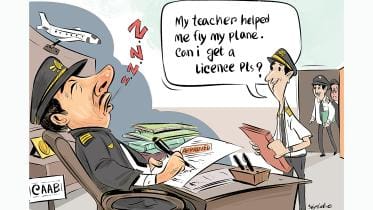Journalists trapped in legal maze
More than a year since July uprising, at least 296 journalists and media managers remain entangled in cases linked to deaths and violence
1 November 2025, 18:00 PM
Ministry drops independent commission from journo protection law
A draft ordinance prepared by the information ministry has omitted any reference to an independent media commission as proposed by the body tasked with media reforms.
28 October 2025, 18:11 PM
NCP weighing its paths to JS
Nearly half of the NCP’s central leaders favour forging an alliance with the BNP ahead of the 13th national election in February.
11 October 2025, 18:00 PM
Govt plans to form paramilitary force for airports
Named Aviation Guard Bangladesh (AGB), the force would comprise 7,650 personnel
29 September 2025, 18:02 PM
Govt plans sweeping overhaul of NHRC
The government has drafted an ordinance to unshackle the National Human Rights Commission (NHRC) from a 15-year bar on probing members of the security forces.
20 September 2025, 18:21 PM
AL govt’s secret surveillance state
From snooping devices carried in backpacks to locate people through their phones to a massive infrastructure that can intercept even end-to-end encryption from a central command centre, the Awami League government had been on an increasingly aggressive trajectory towards building a powerful surveillance state.
10 August 2025, 18:00 PM
Bangladesh Police: Equipped to inflict heavy casualties
Police arms records show the brutal truth behind the July killings; the force bought 7 times more lethal weapons than non-lethal ones in 2021-23
9 August 2025, 18:00 PM
Hasina’s final days before the fall
A desire for power, intolerance for dissent, and failure to see the writing on the wall undid Hasina's iron-fisted rule
4 August 2025, 18:11 PM
Experts question training flights above mega city
Aviation experts and pilots, both military and civilian, yesterday questioned the rationale behind allowing military aircraft to conduct training exercises over a densely populated area like Dhaka.
21 July 2025, 18:24 PM
2 years lost, life shattered
He was around 15 when he was picked up, a ninth grader.
15 June 2025, 19:20 PM
Enforced disappearance: Anti-terror law abused most to frame victims
The fallen Sheikh Hasina government abused the Anti-Terrorism Act, 2009 the most to prosecute victims of enforced disappearance, found the commission investigating enforced disappearances.
15 June 2025, 18:37 PM
Enforced disappearances: Commission finds 16 secret detention centres
The Commission of Inquiry on Enforced Disappearances has found 16 secret detention centres across the country so far.
4 June 2025, 18:52 PM
Budget targets ex-citizens’ laundered assets
One of the main targets of this government is the recovery of stolen assets, or assets that have been pilfered abroad through capital flight.
2 June 2025, 18:00 PM
The story of Hamid’s exit
Security footage obtained and analysed by The Daily Star shows that Hamid's car reached the barrier gate of the VIP terminal at 12:46am on May 8
24 May 2025, 18:01 PM
Licence to fly: Pilots faked flying records
CAAB inquiry finds, regulator yet to take action
11 May 2025, 18:09 PM
Licence to fly: Regulator repeatedly ignored red flags
CAAB’s own inquiry finds irregularities by training academies, raising questions about aviation safety
10 May 2025, 18:13 PM
Waiver that stole justice
“They made us sign a waiver stating that we would never file any case before they handed over my brother’s body.”
5 May 2025, 18:05 PM
World press freedom day: 266 journalists face criminal cases so far
Fears for physical safety and instances of judicial harassment are still profoundly visible -- only the actors have changed.
2 May 2025, 18:01 PM
How our media got politicised
How did our media get to a place where censorship is rampant and media organisations pander to political parties?
6 April 2025, 18:00 PM
Tk 2.21cr extorted daily from city transport
Finds govt probe; transport sector now controlled mostly by BNP-linked influentials
8 March 2025, 18:00 PM








